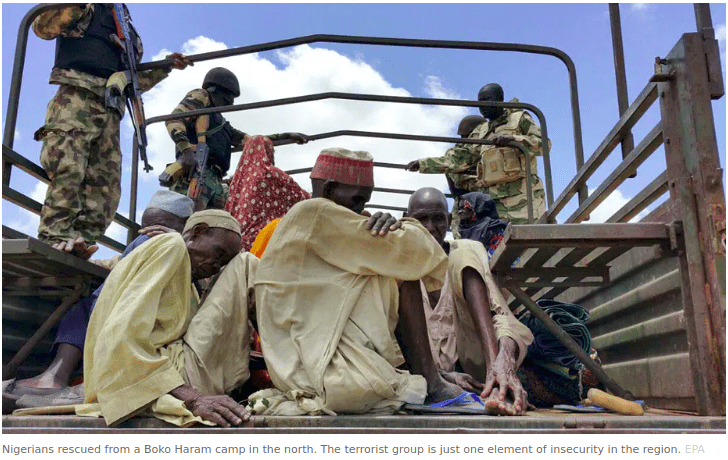National Issues
Northern Nigeria and the Interconnected Crisis of Poverty, Insecurity, and Kidnapping -By Fadeela Mustapha Lawan
Poverty can create an environment in which people feel they have no other options but to engage in criminal activity. Meanwhile, insecurity can exacerbate poverty by making it difficult for people to feel safe and pursue opportunities for economic advancement.

In Northern Nigeria, a storm of poverty, insecurity, and kidnapping is leading to a cycle of despair. The recent removal of fuel subsidies has certainly exacerbated the issue of kidnapping and banditry in Nigeria, fuel prices have skyrocketed, leading to food shortages and an increase in poverty and has serious affected the lives of the common people. The poor are the worse hit as they are already struggling to meet their basic needs.
It’s estimated that the states of the Northwest and Northeast regions, such as Borno, Kano, Katsina, and Zamfara, are among the most severely affected by the rise in food prices which has led to hunger due to the fuel subsidy removal.
These states have long struggled with poverty and inequality in the distribution of national wealth, and the removal of the subsidy has pushed many families to the most poorest living condition. This economic realities has led to frustration and anger, which in some cases has turned to violence.
Women and girls are the most vulnerable to the effects of the policy, as they often have less access to resources and decision-making power.
In recent years, Nigeria has experienced a dramatic increase in kidnapping cases, particularly in the states of Kaduna, Katsina, and Zamfara. This is due to a variety of socio-economic factors, including high levels of corruption, poverty, lack of employment opportunities for young people. As a result, kidnapping has become a source of income for some people and a common occurrence as people are desperate to make ends meet, leading to tragic consequences for the victims and their families.
After decade of Boko Haram conflict, the northeast region of Nigeria, is still facing a major humanitarian crisis. This is due to the widespread destruction and displacement caused by the conflict, which has left millions of people without homes, jobs, or access to basic services.
In addition, the area is still facing the threat of attacks by remnants of Boko Haram and other armed groups. There is also a risk of famine, as people are unable to farm or access markets. One of the key factors contributing to the current insecurity crisis is the lack, excessive corruption and maladministration.
There is need for the goverment to rise up to its responsibilities and protect Nigerians because its the responsibility of every responsible goverment to protect its citizens as a primary responsibilities as there is a sense of hopelessness among the people, and the future looks back for northern Nigeria unless penacea is provided for the lingering issues.. The abductions in both Borno and Zamfara states have had a negative impact on education.
In Borno state, the Chibok abduction led to a decrease in school enrollment, while the Jangebe abduction in Zamfara state has led to school closures. These incidents could hinder the country’s progress and economic growth. There is a clear correlation between poverty and insecurity. Poverty can create an environment in which people feel they have no other options but to engage in criminal activity. Meanwhile, insecurity can exacerbate poverty by making it difficult for people to feel safe and pursue opportunities for economic advancement.
Fadeela Mustapha Lawan, from the Department of Mass Communication, Borno State University.









